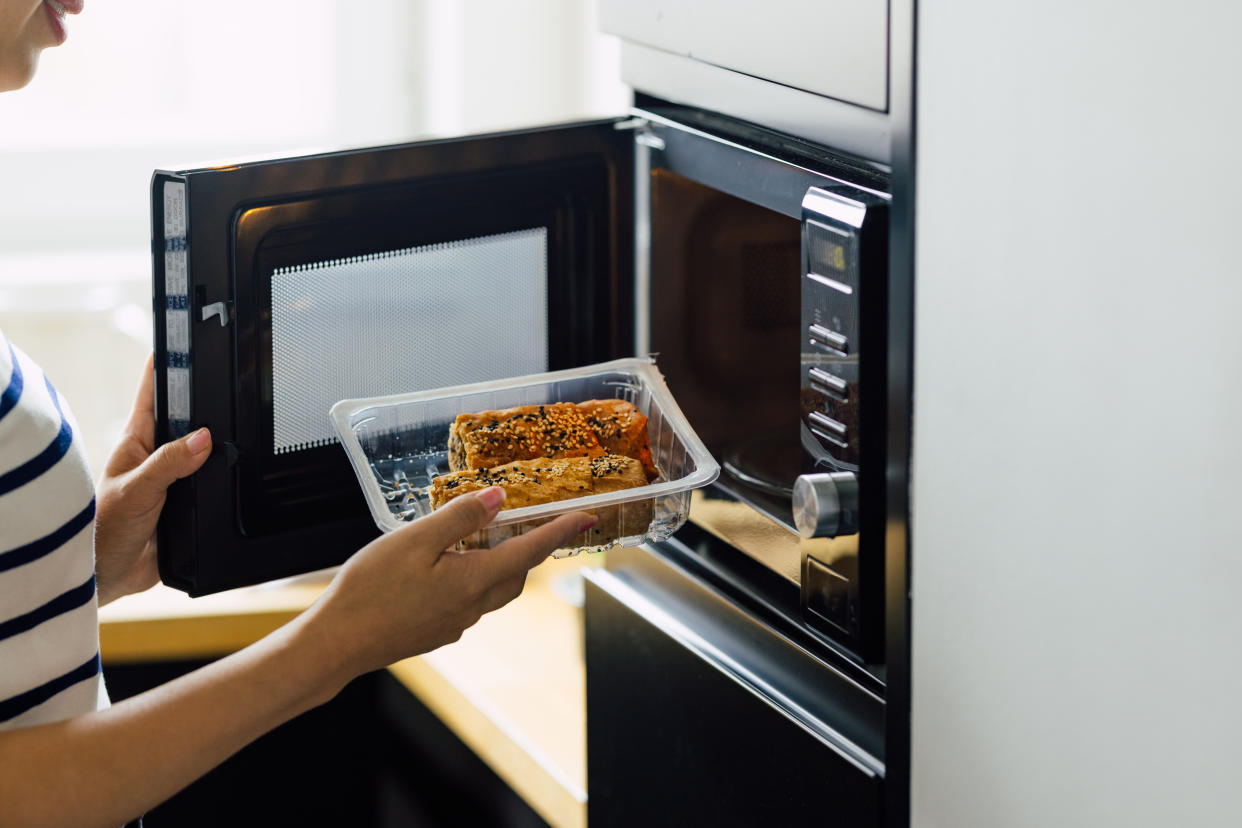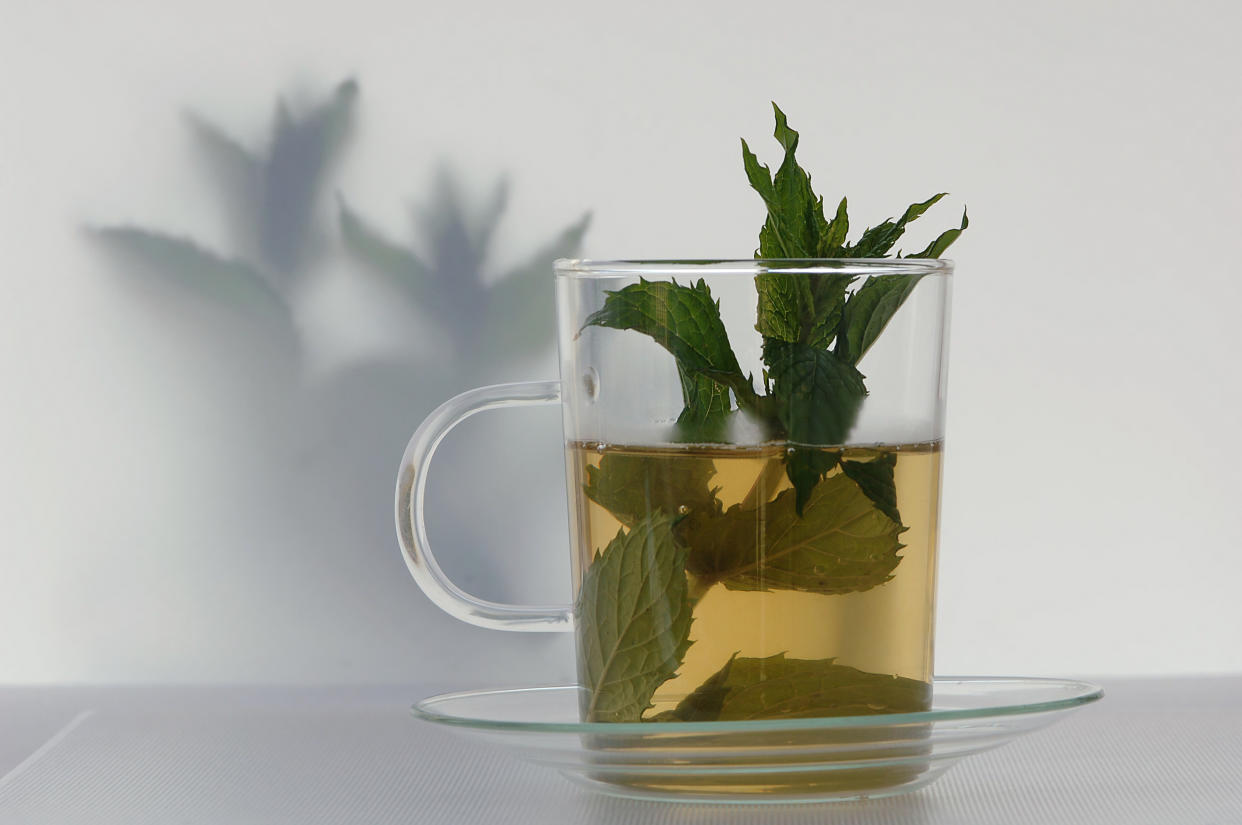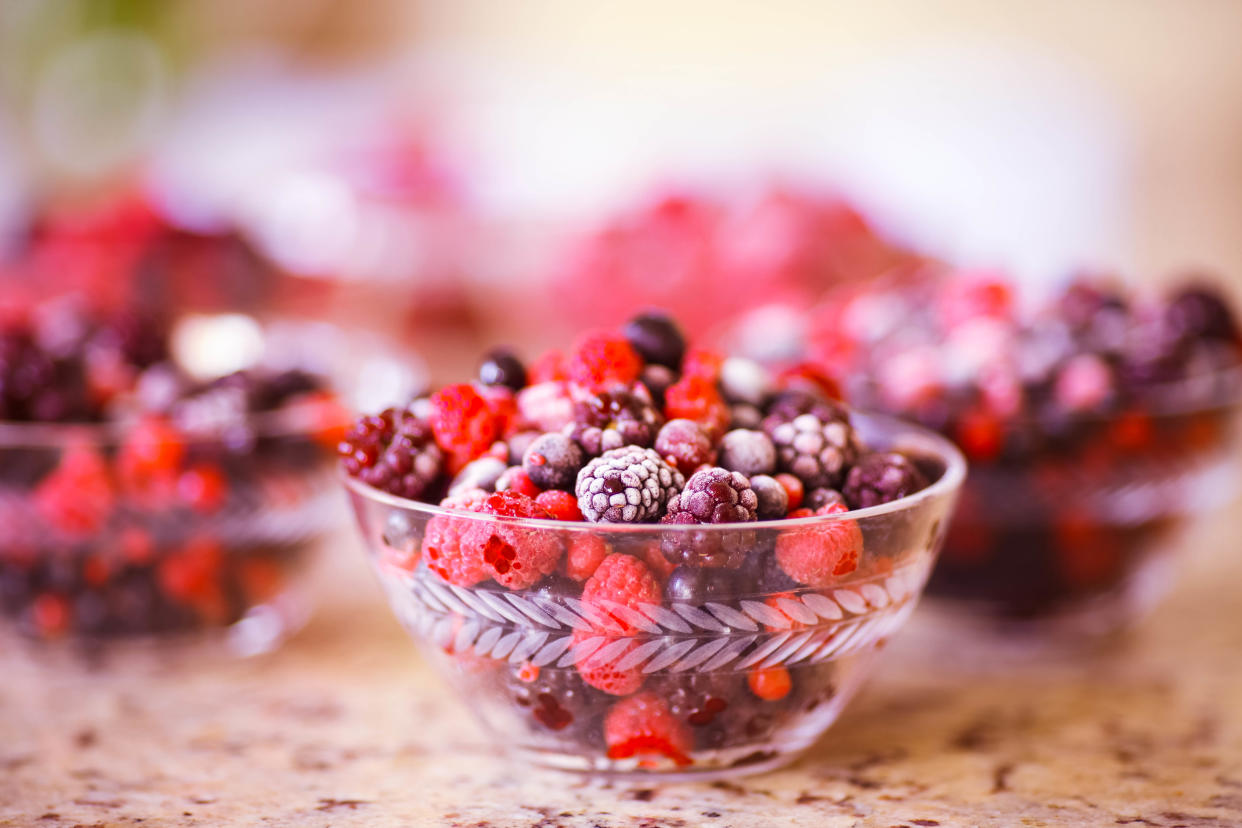Microwaving food is bad and four other food myths debunked by expert

If you’ve ever considered all carbs to be ‘bad’, or that avoiding fat will solve all of your problems, then you’ve probably fallen for a few food myths.
Throw in our ever-growing reliance on social media, trending products, and new fad diets thrown our way and it’s basically a recipe for false information.
Thanks to advancements in scientific research, we’re constantly learning more about the food we eat and the exact role it plays in our bodies and wellbeing.
So, to help separate fact from fiction, Kerry Beeson, nutritional therapist at meal prep service Prep Kitchen has debunked five common food myths.
Myth: Five fruit and vegetables a day is enough
Instead of aiming for just five fruit and vegetable portions per day, Beeson says you should instead see this as a minimum target.
"The ‘five a day’ recommendation originates from World Health Organisation advice that eating at least 400g of fruit and veg daily can help to avoid serious health issues," she adds.
"However, research suggests that we should actually be aiming for seven to 10 portions each day, with a ratio of five vegetables to two portions of fruit. Interestingly, research has suggested that the benefits are increased proportionally with the amount of fruit and vegetables eaten, so more is more in this case."
Myth: Microwaving food destroys nutrients
"This is a common misconception," Beeson explains. "Nutrients in food are destroyed by heat, whilst water-soluble vitamins can be lost through immersion in water. These factors are the same regardless of the method of heating. Nutrient content may actually be higher in some microwaved foods thanks to the shorter cooking time and the lack of requirement to be immersed in boiling water.
"So if you’re considering microwavable meal prep options, this is actually a great way to hit your nutrition goals without compromising on time."

Myth: Peppermint tea can help with indigestion
If you’ve ever been told to drink some peppermint tea to help with indigestion, Beeson says you may want to give this a miss.
"Peppermint tea has long been a go-to natural remedy for indigestion or heartburn. Whilst it is an antispasmodic which can help relieve bloating and flatulence, the muscle relaxing action of peppermint can actually worsen the symptoms of heartburn by loosening the lower oesophageal sphincter," she explains.
"This allows acid to travel back up the oesophagus, causing acid reflux. Instead, if you experience heartburn, you should opt for some soothing slippery elm, or consider introducing daily probiotics."
Myth: All fats are bad for you
"The myth surrounding fat consumption has not been helped by old school ‘fat-free’ diets," Beeson says. "However, fat is vital for good health. Your body uses fats to build hormones and cell membranes. Fats also support brain and heart health, helping with the absorption of fat-soluble vitamins A, D and E.
"Importantly, there are two types of fats: saturated and unsaturated. We do need saturated fats, but not necessarily through our diet as our bodies produce these itself. So-called ‘essential fats’, such as Omega 3 and Omega 6 fatty acids, however, must be obtained from the diet as our bodies can’t synthesise them. Oily fish, avocado, olive oil and nuts are good sources of essential fats. These should make up around 35% of our diet each day."

Myth: Frozen food isn’t as good as fresh
If you’ve ever picked up fresh fruit or vegetables instead of frozen because you thought fresh was better, think again.
"We’re programmed to think that fresh is best and this is certainly the case if picked and eaten immediately, for example, if you grow your own vegetables at home," Beeson says. "In most cases though, we buy our fruit and vegetables in the supermarket, where the ‘fresh’ produce is often already several days old.
"Frozen foods are typically frozen when they’re at their peak of freshness to preserve their nutrients, meaning they can be just as good as fresh, and in some cases, better."
Nutrition: Read more
How to adjust your diet to suit your career, according to a nutritionist (Yahoo Life UK, 5-min read)
Woman determined to be ‘fit at 30’ loses 4st in 4 months without restricting her diet (Yahoo Life UK, 4-min read)
Mum goes from size a 26 to size 10 by using her kids as gym weights (Yahoo Life UK, 6-min read)


